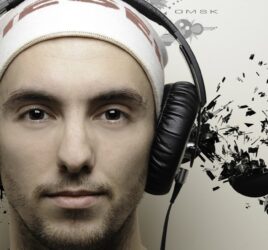
Be specific! Overgeneral memory in Dissociative Identity Disorder
Autobiographical memory is your memory of past personal events. It is considered essential for a coherent and consistent personal identity. Also, your memories of past events help you function in daily life, for example when solving interpersonal problems and when imagining your goals for the future.
However, memories of the past are not always coherent and consistent, nor are they always pleasant. This is certainly the case for patients diagnosed with Dissociative Identity Disorder (DID), formerly known as Multiple Personality Disorder. The main characteristic of DID is a disruption of identity. According to the dominating theoretical model (Dalenberg et al., 2012), the identity disruption results from chronic abuse beginning in early childhood. Patients have the feeling of consisting of two or more separate identities, unique in appearance and abilities. When patients “switch” between identities, they report feeling, behaving, perceiving, and thinking differently. They also report different life histories. Some identities, called trauma identities, feel as if they are stuck in the past. These identities constantly relive past traumatic experiences, including the associated overwhelming negative emotions. Other identities, called avoidant identities, do not share these disrupting memories and focus on their chores in daily life. These identities generally experience more blunted emotions.
“Patients have the feeling of consisting of two or more separate identities, unique in appearance and abilities.”
Given that patients with DID perceive differences in autobiographical memory and functioning between identities, we decided to test memory functioning in a controlled study (Huntjens, Wessel, Hermans, & Van Minnen, 2014). We asked patients to come up with specific memories of their personal past in response to emotional cue words (e.g., ‘sad’). A specific memory is a memory of a discrete event occurring at a particular place and time, lasting no longer than a day. Most people, when asked to come up with a specific memory in response to the cue word ‘sad’, will name events such as ‘the funeral of my uncle Tom’. Moreover, when retrieving the specific memory, most people re-experience the emotion attached to the event. So when they think back to their uncle Tom’s funeral, they will likely feel some of the sadness originally experienced during the event.
In contrast, some people quite consistently come up with more general memories in response to the emotional cue words. This is called an overgeneral memory retrieval style. Overgeneral memories can be extended in time, referring to events of longer duration (e.g., I felt sad after my divorce). They can also be extended in frequency, referring to repeated events (e.g., I felt sad every time I failed an exam).
“We did not find patients to differ in memory specificity between identities.”
In our study, we asked DID patients to retrieve specific memories in two different identities, a trauma identity and an avoidant identity. We expected the avoidant identities to have a more overgeneral retrieval style compared to the trauma identities. However, the results were not as expected. We did not find patients to differ in memory specificity between identities. Instead, we found patients to be more overgeneral in both identities compared to healthy controls. Thus, our results do not support the central claim of differential identity functioning in DID, as posited in the dominating theoretical model of DID.
Interestingly, the results also did not agree with the main critical understanding of DID, which argues that the disorder results when people with ambiguous or misdiagnosed symptoms (i.e., mood swings or identity confusion) are exposed to suggestive procedures and reinforcement of DID-like behavior (i.e., by therapists), media influences, and broader sociocultural expectations (Lynn, Lilienfeld, Merckelbach, Giesbrecht, & Van der Kloet, 2012). In this view, no abnormalities in basic memory functioning would be expected in either identity.
“The similar results in DID and PTSD add empirical evidence to the role of overgeneral memory in the maintenance of (trauma-induced) psychological problems.”
Importantly, the results in the DID patients were similar to those of a second patient group included in our study, consisting of patients diagnosed with post-traumatic stress disorder (PTSD) with a comparable history of childhood trauma. The PTSD group showed a comparable inclination to retrieve overgeneral memories (just as PTSD patients with adult trauma and depressed patients in other studies). The similar results in DID and PTSD add empirical evidence to the role of overgeneral memory in the maintenance of (trauma-induced) psychological problems. An overgeneral retrieval style may help patients in the short term, as one of the functions of such a retrieval style is to avoid the retrieval of emotions attached to specific memories. This prevents the experience of negative feelings. In the longer term, however, the advantage may convert into a disadvantage. First, having an overgeneral retrieval style hampers the emotional processing of traumatic memories, which is thought to be essential for recovery. Second, having an overgeneral retrieval style not only reduces the experience of negative emotions, but also the experience of positive emotions. This has a negative impact on mood repair. Third, a lack of memory specificity will have a detrimental impact on daily functioning by interfering with interpersonal problem solving and future goal setting. Consequently, interventions for DID and PTSD have started to look into enhancing autobiographical memory specificity (Moradi et al., 2014). Their ultimate aim is to enable patients to function well in the present and to take a healthy step into the future.
References:
Dalenberg, C. J., Brand, B. L., Gleaves, D. H., Dorahy, M. J., Loewenstein, R. J., Cardeña, E., & … Spiegel, D. (2012). Evaluation of the evidence for the trauma and fantasy models of dissociation. Psychological Bulletin, 138, 550-588.
Huntjens, R. J. C., Wessel, I., Hermans, D., & Van Minnen, A. (2014). Autobiographical Memory Specificity and Avoidance in Dissociative Identity Disorder. Journal of Abnormal Psychology, 123, 419-428.
Lynn, S. J., Lilienfeld, S. O., Merckelbach, H., Giesbrecht, T., & Van der Kloet, D. (2012). Dissociation and dissociative disorders: Challenging conventional wisdom. Current Directions in Psychological Science, 21, 48-53.
Moradi, A., Moshirpanahi, S., Parhon, H., Mirzaei, J., Dalgleish, T., & Jobson, L. (2014). A pilot randomized controlled trial investigating the efficacy of Memory Specificity Training in improving symptoms of post-traumatic stress disorder. Behaviour Research and Therapy, 56, 68-74.
NOTE: Image by David Goehring, licenced under CC BY 2.0.



